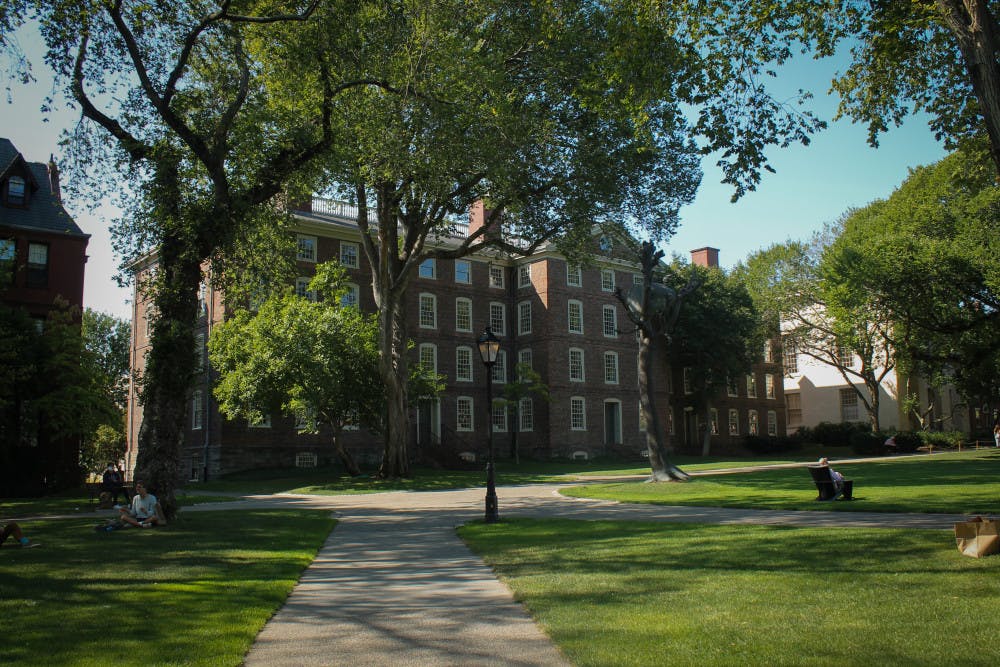Teaching assistants have always played an essential role in helping classes run smoothly, moderating discussion sessions and answering students’ questions. Now, they are also navigating the remote learning environment, working with instructors to offer accessible and comprehensive teaching to students scattered across the world.
For some students, like Savannah Lewis ’21, a TA for both BIOL 0380: “The Ecology and Evolution of Infectious Disease” and BIOL 0470: “Genetics,” support from her professors and fellow TAs in her courses has been strong, even allowing the shift to remote instruction to come with new opportunities. In reworking the curriculum during the summer to accommodate remote learning, Lewis was able to help introduce a bioethics section to Genetics for the first time in the course’s history.
Still, moving courses online comes with difficulties. Lewis, who is studying from California this semester, said that her previous experiences as a TA have been largely defined by in-person interactions with students. Now, “it is not easy to be your animated self on a computer screen multiple times a day,” she said. “Bridging that communication gap is going to be a challenge now more than ever.”
Nick Young ’23, who is a TA for CSCI 0190: “Accelerated Introduction to Computer Science,” said that the high enrollment this semester has made the TAs’ jobs difficult, due to large lab sections and high demand during TA hours. He said the course is somewhat “overloaded compared to last year.”
A total of 116 students are enrolled in the course this semester, compared to an average of 67 in the previous three fall semesters, according to the Courses at Brown website. This semester there were 13 TAs hired for the course, one more than the 12 in each of the three previous fall semesters, according to the course’s website.
For the most part, Young has found his workload manageable. “Of course it’s a lot harder to reach students and provide them with help if you can’t be there physically,” he said, “but overall things have been pretty okay.”
Other classes in the department have also seen enrollment swell. CSCI 0020: “The Digital World” reached an 18-year enrollment record of 307, according to Elizabeth Wang ’21, one the class’s head TAs.
The course currently has 11 TAs, and, with high enrollment, accommodating student needs has been difficult. One day last week, about 60 students logged into the line for TA hours, Wang said. “Some people didn’t even get seen,” she added.
Wang said that remote learning played a role in the high enrollment this semester, as the course “is one of the more accessible computer science courses.” Having received permission from the course’s instructor, Wang and her fellow head TA are preparing to hire more TAs in the coming weeks to accommodate high student demand.
To better support student needs, Wang and her staff have been adapting their technologies to be more accommodating. For example, students in the course are generally required to download a text editor to run and type code on their own computers. This year, for less complicated projects, they will be using a free platform called Google Colab, where students can work without having to download materials.
Some instructors are also adapting the TA role for virtual learning. Eric Victor, lecturer in chemistry, will place the TAs for his course CHEM 0330: “Equilibrium, Rate, and Structure,” into small groups where students can collaborate on assignments. This structure differs from years prior, where TAs held “more of a reactionary role,” helping students with their issues as they arose, Victor said.
This year, he hopes the TAs can act “more as the catalysts to get the group discussing and working on problems together.”
For Victor, the biggest difficulty with the upcoming semester will be “recreating the environment magic as best as possible,” he said.
“We're doing the best with what we have,” he added.
— With additional reporting by Olivia George

Jack Walker served as senior editor of multimedia, social media and post- magazine for The Herald’s 132nd Editorial Board. Jack is an archaeology and literary arts concentrator from Thurmont, Maryland who previously covered the Grad School and staff and student labor beats.





